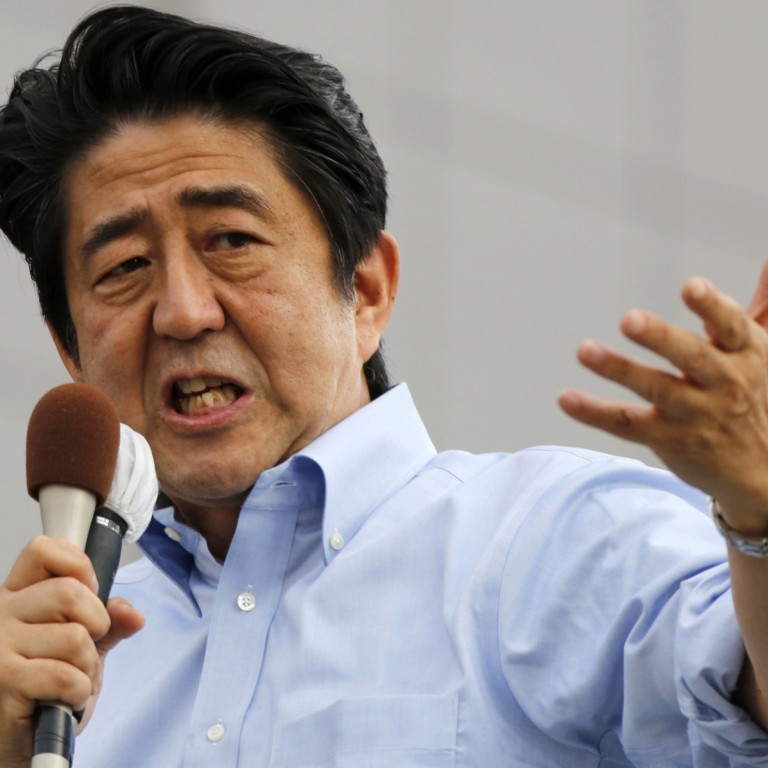
Japan premier will not visit controversial war shrine
Japanese Prime Minister Shinzo Abe will not visit a controversial shrine to war dead on the anniversary of his country’s surrender in World War II, sources and a report said late on Thursday.
The premier will stay away on August 15 from the Yasukuni shrine in Tokyo, two government sources close to Abe said just days after the country’s deputy premier sparked controversy by saying Japan should look to Nazi Germany for guidance in changing its pacifist constitution.
The decision to stay away from the shrine, also reported by Kyodo news agency, could be seen as part of efforts to avoid further tensions with countries such as China and South Korea, which were victims of Japan’s pre-war and wartime aggression.
The shrine honours some 2.5 million citizens who died in World War II and other conflicts, including 14 top war criminals.
Visits to Yasukuni by Japanese leaders spark anger in neighbouring nations, who say the country has failed to atone for its brutalities in the first half of the 20th century, including the 1910-1945 colonisation of the Korean peninsula.
Abe, a hawkish nationalist, has defended the right of leaders to visit the shrine.
“I think it’s quite natural for a Japanese leader to offer prayer for those who sacrificed their lives for their country, and I think this is no different from what other world leaders do,” he told Foreign Affairs magazine earlier this year.
Abe has stayed away from the shrine since taking office in December for a second term, but a growing number of his ministers have visited the site.
The long-simmering issue made international headlines in April when nearly 170 Japanese lawmakers made a pilgrimage there to mark a spring festival, angering Beijing and Seoul and sparking diplomatic protests.
Among those honoured at the site in the heart of Tokyo is General Hideki Tojo, the prime minister who authorised the attack on Pearl Harbor which drew the US into the war.
Even at home there is significant opposition to Yasukuni, including among some relatives of those honoured there who say it glorifies war and the darker chapters in Japan’s history.
Since sweeping national elections on a pledge to stoke Japan’s lumbering economy and get tough on diplomacy, Abe has vowed to strengthen Japan’s defences and not to yield to China over a set of contested islets in the East China Sea.
Abe’s Liberal Democratic Party has said it wants to revise the nation’s US-imposed pacifist constitution to define its defence forces as a full-fledged military force, after maritime skirmishes with Beijing near the disputed territory.
Earlier this week, Abe’s gaffe-prone deputy prime minister Taro Aso stoked controversy when he said Tokyo could learn from Nazi Germany in speedily ushering in a new constitution.
The remarks stoked an outcry from Japan’s neighbours and others. Aso on Thursday retracted his remarks, saying there had been a “misunderstanding”.
